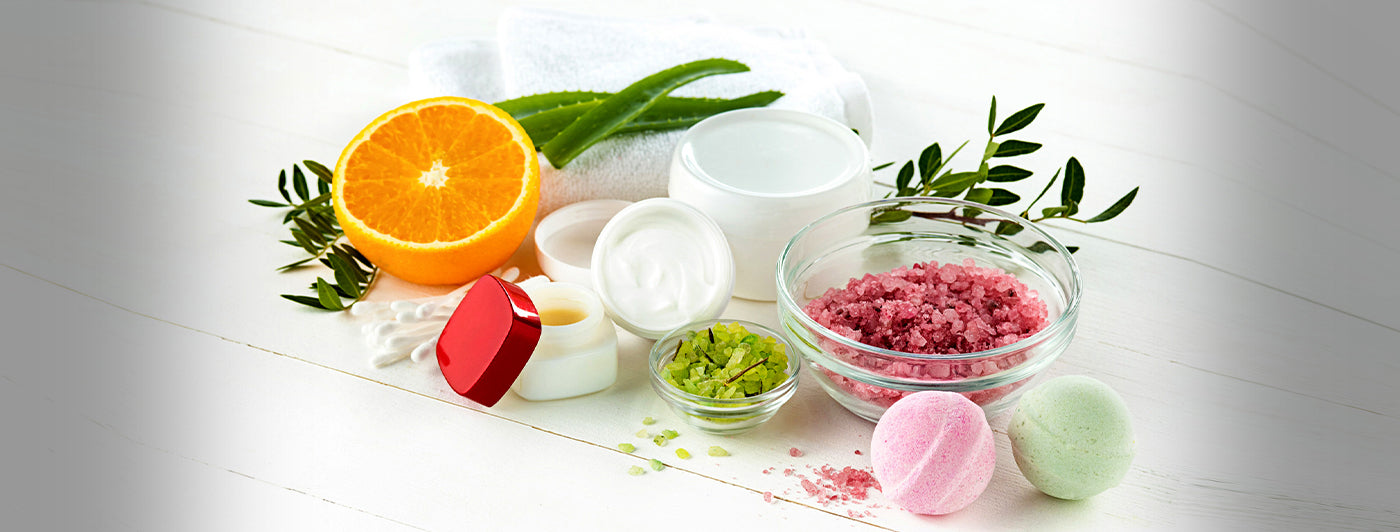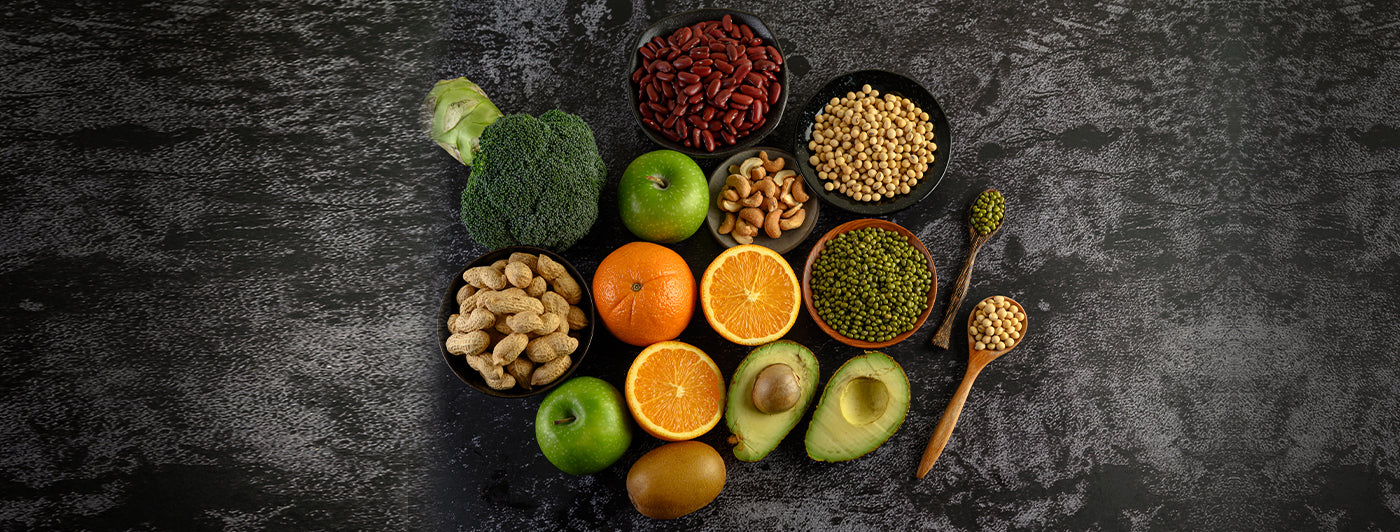Collagen is the foundation of healthy skin, hair, and nails, offering structural support, elasticity, and hydration. Traditionally sourced from animals, many people are now exploring vegan collagen sources to maintain their beauty and vitality without compromising their ethical or dietary values. Let's dive into the best vegan-friendly options that promote collagen production, keeping your skin radiant and healthy.
What Are Vegan Collagen Sources?
Unlike animal-derived collagen, which directly supplements collagen levels, vegan collagen sources work by providing nutrients that stimulate your body’s natural collagen production. These nutrients include amino acids, antioxidants, vitamins, and minerals that form and stabilize collagen in the skin and connective tissues.
By understanding how vegan collagen sources work, you can select the right foods to meet your skin and health goals naturally and ethically.
Nutrients Vital for Collagen Production
To effectively support collagen synthesis, it’s important to include the following nutrients in your diet:
- Vitamin C: Essential for the enzymatic production of collagen, it also protects skin cells from oxidative damage.Found in citrus fruits, strawberries, bell peppers, and broccoli.
- Amino Acids: Proline, glycine, and lysine are the building blocks of collagen. Plant-based sources include lentils, soybeans, pumpkin seeds, and chia seeds.
- Zinc and Copper: Both minerals play a role in collagen stabilization and repair. Sources include nuts, seeds, and whole grains.
- Antioxidants: Foods like green tea, spinach, and kale help combat oxidative stress, which can damage collagen in the body.
These nutrients, abundant in vegan collagen sources, support the body’s ability to maintain youthful, healthy skin.
Types of Collagen and Their Vegan-Friendly Sources
Collagen exists in multiple forms, with Types 1, 2, and 3 being the most prominent for skin and joint health. Let’s look at their specific functions and how plant-based nutrients can help.
1. Type 1 Collagen
Function: Found in skin, bones, tendons, and ligaments, Type 1 collagen is responsible for skin elasticity and hydration.
Vegan Sources:
- Vitamin C-rich foods: Oranges, strawberries, and bell peppers.
- Proline and glycine: Found in lentils and seeds like pumpkin and sunflower.
- Antioxidants: Spinach, green tea, and kale.
2. Type 2 Collagen
Function: Supports cartilage and joint health, making it vital for mobility and flexibility.
Vegan Sources:
- Hyaluronic acid-rich foods: Sweet potatoes, kale, and soy-based products.
- Vitamin A: Carrots, pumpkins, and apricots.
- Omega-3 fatty acids: Found in walnuts, flaxseeds, and chia seeds.
3. Type 3 Collagen
Function: Often found with Type 1, it supports skin elasticity and blood vessels while contributing to cardiovascular and muscle health.
Vegan Sources:
- Copper-rich foods: Cashews, sesame seeds, and lentils.
- Zinc: Chickpeas, quinoa, and whole grains.
- Vitamin C sources: Guava, kiwi, and bell peppers.
By including a variety of these vegan collagen sources, you can ensure your body receives the nutrients necessary to produce all types of collagen effectively.
Best Vegan Collagen Sources for Skin Health
Here are some of the top vegan collagen sources you can include in your diet to naturally enhance collagen production:

1. Nuts and Seeds
Rich in zinc, copper, and essential fatty acids, nuts like almonds and seeds like chia, flax, and pumpkin help stabilize collagen fibers in the skin. For additional convenience, a plant based protein powder can also deliver these essential nutrients, making it a practical choice to enhance collagen production.
2. Legumes
Lentils, chickpeas, and black beans are excellent sources of protein, zinc, and amino acids, all of which are essential for collagen synthesis. These plant-based options provide the foundational nutrients required for your body to produce collagen naturally.
3. Dark Leafy Greens
Spinach, kale, and Swiss chard are rich in antioxidants and Vitamin C, which help protect existing collagen from oxidative damage while encouraging new production. Including these greens in your diet also contributes to overall skin resilience and hydration.
4. Citrus Fruits and Berries
Packed with Vitamin C, these fruits are indispensable for collagen synthesis. Oranges, lemons, strawberries, and kiwi are excellent choices for a vitamin-rich snack or addition to meals, making them among the most popular vegan collagen sources.
How to Consume Vegan Collagen Sources
Incorporating vegan collagen sources into your routine doesn’t have to be complicated. Here are a few practical tips:
- Blend Them in Smoothies: Add spinach, berries, chia seeds, and other ingredients for a collagen-boosting breakfast.
- Make Nutty Snacks: Create energy balls using almond butter, flaxseeds, and oats.
- Include Them in Meals: Toss leafy greens and legumes into salads or soups for a nutrient-rich meal.
Understanding how to consume collagen powder effectively can also complement your diet. Add it to water, smoothies, or plant-based milk for an easy collagen boost.
How to Increase Collagen Production Naturally
Boosting collagen production is about more than just diet. Here are some additional tips to enhance your body’s ability to produce collagen naturally:
- Stay Hydrated: Water keeps your skin plump and supports collagen function.
- Avoid Excessive Sun Exposure: UV rays degrade collagen, so protect your skin with sunscreen.
- Get Quality Sleep: Collagen regeneration occurs during sleep, so aim for 7–8 hours each night.
- Exercise Regularly: Physical activity improves blood flow, delivering nutrients necessary for collagen production.
Incorporating these lifestyle habits along with a diet rich in collagen producing foods will help you maintain healthy and youthful skin.
Final Thoughts
Switching to vegan collagen sources is not only an ethical choice but also a highly effective way to support your skin’s health and vitality. Some individuals also explore vegan collagen supplements to complement their collagen-friendly diets, ensuring they meet their nutritional needs effectively. With options like citrus fruits, leafy greens, nuts, and seeds, the power to enhance your collagen naturally is in your hands.











